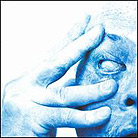July 2003
During the '70s, I grew tired of the excesses and pretentiousness of progressive rock. It had become self indulgent, long-winded, and bereft of the rhythm and abandon that made rock and roll such a liberating part of my life. It represented, in part, what punk rock rebelled against. Now, when most rock bands have as their goal nothing more ambitious than seeing their video on MTV2 and sounding as much like every other band as they can, it’s somewhat refreshing to hear a band that wants to make a Big Musical Statement. I went to Porcupine Tree’s smartly designed website and listened to a few selections from their previous discs. The site includes several complete tracks from each of their titles. Much of what I heard there was well played and had some interesting ideas. Still, I found myself getting restless after a while -- my old problems with progressive rock again. In Absentia, on the other hand, held my interest for most of its 68 minutes. The songs are long enough to develop Wilson’s complex ideas, but they don’t feel forced. Wilson borrows a lot of the distortion and power of metal bands like Metallica, but he plays that volume against softer, more melodic passages. A lot of the new disc’s interest comes from the contrasts between the louder, heavier instrumental sections of the songs and the vocal sections, where Wilson shows a strong pop instinct. Wilson also shows an exceptional skill with vocal arrangements. The multi-tracked harmony vocals have tremendous grandeur. They have the weight and impact of Queen’s vocals, but with a sweetness and beauty that sounds closer to the Hollies or even, in spots, Crosby, Stills, and Nash. Porcupine Tree isn’t doing anything on In Absentia that you haven’t heard before, whether it’s modern metal, progressive rock, or electronica, but Wilson borrows intelligently and combines genres in unique ways. The only overt homage is "Prodigal," which captures Dark Side-era Pink Floyd perfectly, right down to its echo-filled slide guitar. Wilson has enough of his own ideas to keep things sounding fresh, even when revisiting this old territory. In Absentia succeeds in large part because it is free of self-indulgent solos. The long instrumental sections of the songs are written out and there are few improvisations. This music relies on the well-placed guitar or keyboard line to develop a musical theme, and that’s where this band’s strength lies. These musicians are all very good players, especially drummer Gavin Harrison, but, in truth, there is no compelling solo voice in the band. Wilson’s guitar solos are somewhat predictable, in contrast to his melodic strengths as a composer. It’s when he and keyboard player Richard Barbieri play within a tight structure that they really shine. Wilson’s lyrics are occasionally as disturbing as the cover shot on the CD booklet, and he often scores a direct hit, as in these lines from "The Sound of Muzak":
The disc sound's a little compressed at times, and there’s one dud, a long instrumental called "Wedding Nails," smack in the middle of it, but In Absentia make you appreciate what large ambitions in rock can produce in the right hands. Wilson writes fresh songs in a genre that seems washed out. If you’re a fan of progressive rock, you’ll want to hear this disc. Even if you’re not, it may surprise you as much as it did me. GO BACK TO: |
 Porcupine Tree - In
Absentia
Porcupine Tree - In
Absentia Porcupine Tree is
an English band whose music has the grand sweep of the progressive-rock bands of the
‘70s. Led by guitarist and keyboard player Steven Wilson, the band has been recording
since 1991 for independent labels and they’ve built a strong following overseas. In
Absentia is their first disc for a major label, Lava Records (distributed in the US by
Atlantic), and it strikes an intelligent balance between the ambitions of progressive rock
and the more enjoyable and accessible pleasures of pop.
Porcupine Tree is
an English band whose music has the grand sweep of the progressive-rock bands of the
‘70s. Led by guitarist and keyboard player Steven Wilson, the band has been recording
since 1991 for independent labels and they’ve built a strong following overseas. In
Absentia is their first disc for a major label, Lava Records (distributed in the US by
Atlantic), and it strikes an intelligent balance between the ambitions of progressive rock
and the more enjoyable and accessible pleasures of pop.